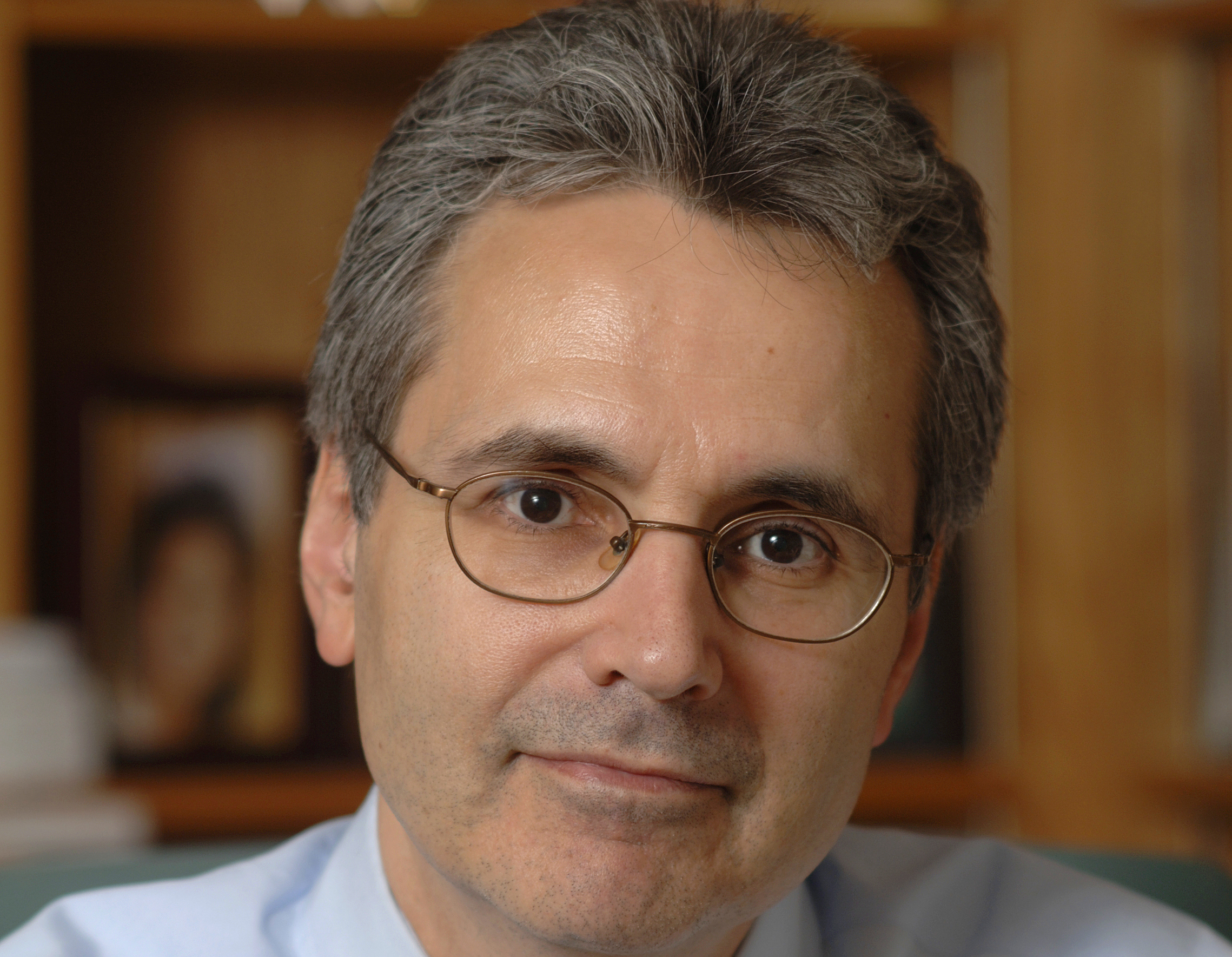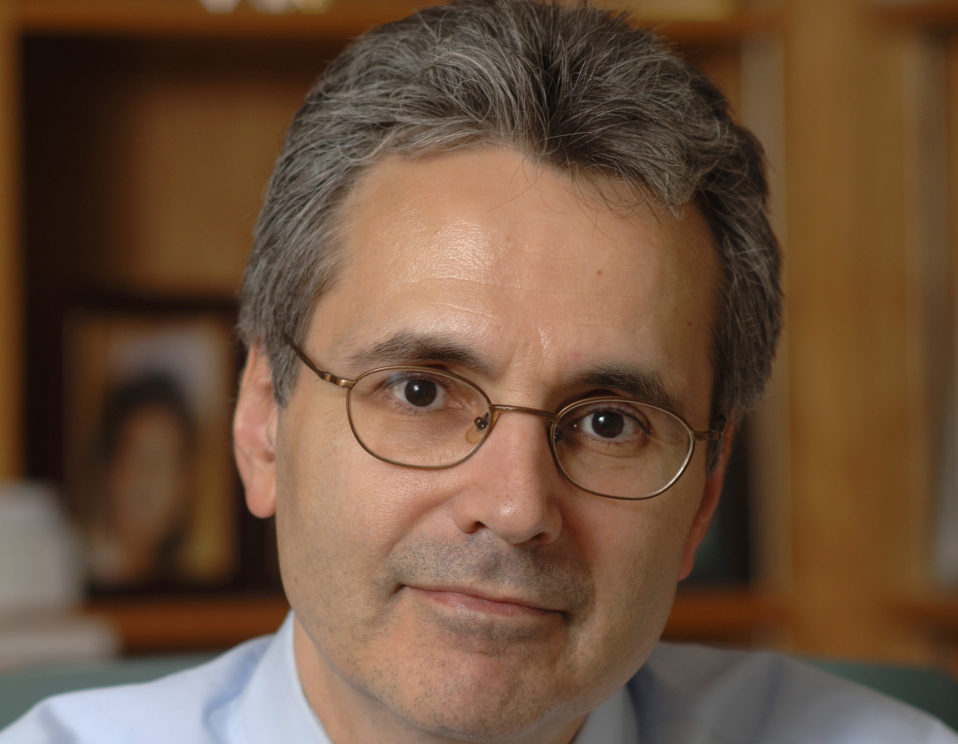University of Texas MD Anderson Cancer Center
Houston, Texas
Professor, Department of Cancer Biology,
Division of Basic Science Research
Research
Dr. Ron DePinho, the recipient of the National Foundation for Cancer Research 2009 Szent-Gyorgyi Prize for Progress in Cancer Research, is working with other scientists on a new drug to target a major signaling protein in over 50% of cancers. The signaling molecule, STAT3, has an integral role in formation of tumors (tumorigenesis) and suppression of our immune system. STAT3 activates transcription – or expression of genes – and therefore controls networks of genes for multiple cellular processes, including proliferation, survival, angiogenesis, metastasis, invasion, and immune escape.
Hyperactivation of STAT3 has been reported in many types of tumors, including head-and neck, brain, breast, liver, lung, kidney, pancreas, prostate, and ovary cancer. STAT3’s key position in cancer signaling as well as in inflammation and fibrosis pathways have been the focus of numerous research and clinical initiatives by the research community to develop effective drugs that target STAT3. Deemed an undruggable molecule, there have been difficulties in developing targeted therapies to STAT3 which include designing stable molecules, creating molecules that can access the inside of cells (membrane permeability) and achieving the optimal dose in tumors to halt tumor growth.
Using computer-based drug screening of hundreds of thousands of compounds from chemical libraries, the scientists have identified several compounds that inhibit STAT3 protein in complex tumor models of various cancer types.
With NFCR support, their efforts have led to a promising therapeutic now being commercialized by the AIM-HI Translational Research Initiative. To learn more, click here.
Bio
Dr. Ronald A. DePinho was the fourth president of The University of Texas MD Anderson Cancer Center, serving from 2012 to 2018 prior to his current position as Professor, Department of Cancer Biology, Division of Basic Science Research, and the Harry Graves Burkhart III Distinguished University Chair in Cancer Biology. Dr. DePinho was a professor of Medicine (Genetics) at Harvard Medical School from 1998 to 2011. He received his M.D. from Albert Einstein College of Medicine in 1981 and began his academic career where he rose to Professor, Department of Departments of Microbiology & Immunology, and Medicine.
Dr. DePinho is an elected member of the National Academy of Medicine; National Academy of Science; Foreign Member, Royal Academy of Science, Portugal; among other memberships in prestigious institutions. In addition to the Szent-Gyorgyi Prize for Progress in Cancer Research, he has received numerous awards including the Biomedicum Helsinki Medal and Lecture, Harvey Society Lecture, and the Prize for Scientific Excellence in Medicine, American Italian Cancer Foundation. His community service includes Member, Steering Committee, National Cancer Institute, Co-Chair, External Advisory Board, The Human Cancer Genome Atlas Project, and numerous cancer society memberships. Dr. DePinho is the author of over 400 publications.

Areas of Focus
Cancer Types
Years of NFCR Funding
2018 – Present











